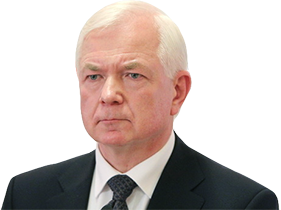From now on, on the orders of the President of the Russian Federation, Vladimir Putin, the 6th Tank Regiment of the Russian army received the honorary title of Guard Lviv, 68th Tank Regiment - "Guard Zhytomyr-Berlin, and the 163rd regiment - Guard Nizhyn.
By assigning the names of Ukrainian cities to the Russian army units, Putin is trying to form among citizens of the countries of the Commonwealth of Independent States (CIS), and above all citizens of Ukraine, Russia and Belarus, the idea that the territories of all these countries are the common zone where shared interests prevail and which has a common history, tightly intertwined during World War 2. And hence, Russia has the right to give such names to its military units that carried out joint operations to liberate the territories during World War 2.
In other words, it is another attempt by Putin to emphasize that Ukrainians and Russians are one nation with a common history. And to prove his point, he resorts to actions related to sensitive historical issues, in particular, that of the fight against fascism. But the main thing is that he's trying to translate it into modern realities. The Kremlin chief seeks to reach out to at least some of the people in Ukraine, claiming that common history can unite the peoples.
In other words, it is another attempt by Putin to emphasize that Ukrainians and Russians are one nation with a common history
That is, since Russia is unable to invade other parts of Ukraine and conquer the entire country by force, Putin is targeting humanitarian and information spheres, speculating on common history and trying to transfer that experience to the present day.
So, of course, Putin is convinced that he absolutely rightfully assigns the names of Ukrainian cities to Russian regiments and divisions under the pretext of a historical fact that territories of Russia and Ukraine were liberated during World War 2 due to a joint effort. Of course, this is being done with a concrete intent, that is to show that Ukraine remains within the zone of Russian interests, and Ukraine and Russia are one space, one nation with a common history.
Is it possible to perceive this renaming as a certain "statement of intentions," as a declaration of certain directions where Putin could continue his aggression against Ukraine, as stated by the Chief of Staff of the General Staff, Gen. Muzhenko, who claimed that Putin was allegedly "marking the territory and voicing claims on the land of other peoples"? I believe such a perception of Putin's move is a bit primitive. Putin looks at things more globally. And if he has any plans to capture foreign territories, such plans are kept secret and they will not be hinted at, so no one will "mark" these territories. It is naive to suppose that Putin marked the territory, hinted at his plans, and in fact, made his secret intentions public.
His global plan is the entire Ukraine: the change of political system into a pro-Russian one, preservation of Ukraine under Russian control, but globally, that is, all of the country, not those three or four cities mentioned in the process of assigning names to army units.
Therefore, the idea of "marking territories" can hardly be true. But the fact that this is a way of influencing people, outlining the fact that Moscow believes these territories are controlled by the Russian Federation both in the past and today, sounds like Putin's actual plan. He seeks to drive a split into a Ukrainian society in order to gain some support for his actions in various regions of Ukraine.
His global plan is the entire Ukraine: the change of political system into a pro-Russian one, preservation of Ukraine under Russian control, but globally, that is, all of the country, not those three or four cities mentioned in the process of assigning names to army units
So, Putin resorted to the "information occupation" of the names of Ukrainian cities and the exploitation of certain historical issues to justify his actions and intentions.
Does Ukraine need to respond in some way to this? Indeed, Ukraine needs to take appropriate measures, making it clear to everyone that nobody has the right, and in this case, Russia and Putin, to decide on the assignment of names of Ukrainian cities to their armed forces' units.
In general, the situation does look absurd: the armed forces, which are currently waging an aggression against Ukraine, now include military units named after the Ukrainian cities, which today oppose Russia!
Mykola Malomuzh is a former head of the Foreign Intelligence Service of Ukraine, Army General



